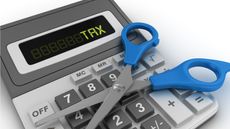Should You Own Crypto if You’re Retired?
Pandora’s box might have just popped open, but let’s take a crack at making some suggestions that could help you to answer that question based on your own situation.


My family traveled overseas about a month ago. Unfortunately, my daughter came down with quite the bug upon arrival, so we went to a pharmacy as quickly as we could. The European pharmacy experience was night-and-day different from what I’m used to. The pharmacist asked a series of questions, made a diagnosis, scanned my card and handed us the medicine we needed. Six euros and 24 hours later, voilà! A happy, healthy child.
I’m used to our medical system, which aside from all the amazing practitioners comes with a lot of “it depends” and a never-ending cycle of referrals, which almost never ends with a straightforward answer. My apologies if this article feels like the latter. Your adviser really has to assess the fit of digital assets in your portfolio. While my firm manages investments for all of our clients, I almost never write about them for general audiences because of the disclosures I must give. So, here we go.
This is not investment advice. If you want investment advice, speak to your adviser. For the purposes of this article, we are going to talk about Bitcoin (BTC). The crypto world is vast, but we are going to talk only about the most mature, biggest cryptocurrency to make this as widely applicable as possible. My firm works mostly with retirees with between $2 million and $10 million, so this article will apply to that group more than anyone else. I think the best way to determine whether you should buy cryptocurrency is by answering the questions that follow the next paragraph.

Sign up for Kiplinger’s Free E-Newsletters
Profit and prosper with the best of expert advice on investing, taxes, retirement, personal finance and more - straight to your e-mail.
Profit and prosper with the best of expert advice - straight to your e-mail.
Do my clients own crypto? Not through me. I am not naïve enough to say that they don’t own some and have even offered my advice on where it would fit. However, I think we are getting closer to a point where we can access it, in a more direct, liquid manner where I would likely use it in very specific situations. The federal court’s recent ruling in Grayscale v. SEC should bring many more investment options to market.
If you’re retired with between $2 million and $10 million, you are probably asking yourself these questions: Do I have enough money to cover my retirement years, and will it last? How do I make sure I don’t leave a mess for my heirs?
I am going to reference these questions below as a framework for decision-making around owning crypto. This will once again highlight my bias as a financial planner, as I am looking at it more from a planning perspective than for the quality of the investment.
1. Do I have enough? BTC has minted many a millionaire. That’s the opposite side of the volatility coin. If you have owned BTC for five-plus years, you have made A LOT of money. So, it is possible that you have enough because of crypto. It’s not all that different from those whose companies went public, suddenly creating enough wealth to allow them to walk away. In that case, concentration got you there, diversification keeps you there.
I highly doubt that if you made enough in crypto to retire, you’re going to drop it all tomorrow. However, I am thinking about this from a planner’s perspective. How do we structure a plan that allows you to do what’s important to you, while still being able to sleep at night? The existing asset class that digital assets fall into, or the new one they will create, is a point of debate. This makes assigning an appropriate portfolio allocation difficult. However, many experts agree that they should not represent more than 5% of your overall portfolio.
That 5% may be elusive because of the tax consequences necessary to get you there. In the case of a client who has a concentrated stock position, we may write call options to get them down to that amount over time and to protect the gain in the investment. This is easier to do in highly liquid large-cap companies or exchange-traded funds (ETFs) than it is in BTC. Therefore, if you are still planning to get rich in BTC and haven’t already done it, consider holding it in a tax-deferred vehicle where you won’t have to pay capital gains taxes.
2. Will it last? When you are retired and drawing off of your investment portfolio, volatility is your enemy. To the extent possible, you want to strip out as much volatility as possible while maintaining the necessary upside to ensure that you don’t run out of money. If you’ve been considering adding BTC to your portfolio, it’s likely that the horror stories have kept you from it so far. BTC lost 83% of its value between December 2017 and December 2018 and 64% of its value in 2022. So, if the S&P 500 drop in 2022 knotted your stomach, this may make you throw up.
Volatility is primarily a risk to the “will it last” question. Taking a serious hit in any given year, while you continue to draw from your portfolio, creates a situation you may not come back from. Imagine walking into a Bed Bath & Beyond liquidation sale and walking out with a new $2,500 Jura coffee machine for $1,000. Big win! That is what it’s like to buy into a volatile asset class in your accumulation years. Being Bed Bath & Beyond and having to sell something at 60% less than what you bought it for is what it’s like for a retiree.
This is the reason to reduce your exposure to 5% or less. The global investment manager VanEck studied the correlation between BTC and the S&P 500 and found it to be much lower than for more common asset classes. Therefore, if you add slight exposure to BTC, it will create a more diversified portfolio, which makes it more likely your money will outlast you.
3. How do I make sure I don’t leave a mess? Given the fact that my firm specializes in working with Baby Boomers, the estate planning component of crypto is a sticking point for me. I have done a lot of due diligence and spoken to a lot of estate planning attorneys to try to fully understand the implications of owning digital assets at death. The reality is that the rules are in their infancy, and there is a lot of inconsistent information and interpretation of how these assets will flow to heirs.
We often recommend an estate plan review every five years and an update when you move, sell a business, have a change in goals, etc. I am now adding the purchase or ownership of BTC (or any crypto) to that list of reasons for updating your plan.
There are different ways to store BTC: custodial and non-custodial. Hot and cold storage options in each of those categories. The differences are beyond the scope of this article. The main thing to understand is that even BTC owned in the most traditional manner will not be as easy for beneficiaries to uncover as, say, an IRA at Fidelity. Your estate plan is where you need to lay out where everything is.
The way you store your BTC is key. One benefit of BTC is the security. That security can work against a beneficiary. If you own what’s known as “cold” BTC, you need a key to access your virtual wallet. Unlike losing a key to your house, there’s no locksmith. It would be like losing your house because you lost your key. This is just one risk of owning BTC at death and one of the reasons we would recommend inter vivos gifts of your digital assets.
If you’re looking for a way to reduce your taxable estate, gifts to kids of BTC may be a good option. The price volatility allows you to give when the price is low and use a lower amount of your lifetime gift tax exemption. Future appreciation will occur outside of your estate.
If you’re charitably inclined, you’d want to use that price appreciation in the opposite way. When the price is high, you would donate directly to a charity, receiving a deduction for the full fair market value and skipping out on the capital gains tax on the appreciation.
Zooming out …
Typically, your financial plan dictates a necessary rate of return and an associated risk level to make your financial goals a reality. The main unknown to me at this point, in that regard, is that I don’t know how to assess BTC’s risk or return. I do not want to be in the position of telling a client that they cannot afford their family vacation this year because they had too much exposure to BTC.
I am optimistic that the future will bring purchase, storage and estate simplicity, along with more predictable investment results. At that point, BTC may play a bigger role in my clients’ plans.
This is provided for informational purposes only. As with any investment, past performance doesn’t indicate future results. Buying, selling, and transacting in Bitcoin or other digital assets, and related funds and products is highly speculative and may result in a loss of the entire investment. For additional information regarding risks, consult with your financial advisor.
related content

After graduating from the University of Delaware and Georgetown University, I pursued a career in financial planning. At age 26, I earned my CERTIFIED FINANCIAL PLANNER™ certification. I also hold the IRS Enrolled Agent license, which allows for a unique approach to planning that can be beneficial to retirees and those selling their businesses, who are eager to minimize lifetime taxes and maximize income.
-
-
 75% of Holiday Travelers Are Cutting Back. Are You?
75% of Holiday Travelers Are Cutting Back. Are You?Over 75% of holiday travelers are adjusting their plans for Thanksgiving, Hanukkah, Christmas and New Year's, due to inflation and pricing pressures, Bankrate survey shows.
By Kathryn Pomroy Published
-
 How to Save Yourself and Your 401(k) From Rising Taxes
How to Save Yourself and Your 401(k) From Rising TaxesTaxes will go up if provisions in the Tax Cuts and Jobs Act are allowed to sunset, but there’s still time to lock in lower taxes on your 401(k) savings.
By Cole Czajkoski, Investment Adviser Representative Published
-
 How to Save Yourself and Your 401(k) From Rising Taxes
How to Save Yourself and Your 401(k) From Rising TaxesTaxes will go up if provisions in the Tax Cuts and Jobs Act are allowed to sunset, but there’s still time to lock in lower taxes on your 401(k) savings.
By Cole Czajkoski, Investment Adviser Representative Published
-
 Want to Avoid Years of Crushing Debt? Save for College Now
Want to Avoid Years of Crushing Debt? Save for College NowCollege is more expensive than ever: Not properly planning to fund your own education or that of your child could saddle you or them (or both of you) with decades of debt.
By Jared Elson, Investment Adviser Published
-
 How to Invest in Companies Before They Go Public
How to Invest in Companies Before They Go PublicCompanies used to do an initial public offering (IPO) when they were much younger, giving investors a much better chance of higher returns. Today, that's where pre-IPO investing comes in.
By Atish Davda Published
-
 Does Financial Fear Have You Spooked? Don’t Cower — Fight
Does Financial Fear Have You Spooked? Don’t Cower — FightTake a page from the heroes and heroines of scary movies and conquer the monsters that are keeping you from tackling your money fears.
By Neale Godfrey, Financial Literacy Expert Published
-
 Is Someone Sabotaging Your Company? Is It You?
Is Someone Sabotaging Your Company? Is It You?Leadership expert outlines ways that leaders thwart the success of their own companies. Knowing what not to do can make clear what they should do instead.
By H. Dennis Beaver, Esq. Published
-
 How a Small Business Can Find the Ideal Banking Partner
How a Small Business Can Find the Ideal Banking PartnerYour financial institution should provide your business with more than checking and savings accounts. It should have a vested interest in your success, especially during uncertain times.
By Kevin Brauer, MBA, CPA, CMA Published
-
 This Halloween, Consider a Phantom Stock Plan
This Halloween, Consider a Phantom Stock PlanBusiness owners could use a phantom stock plan to incentivize key employees without having to share control of the company.
By John M. Goralka Published
-
 Three Ways You Can Flip the Script on Your Taxes
Three Ways You Can Flip the Script on Your TaxesDoes it feel like the tax code is beating you up at times? Instead of accepting that feeling of getting pushed around, here’s how you can pay what you must but no more.
By Scott M. Dougan, RFC, Investment Adviser Published








